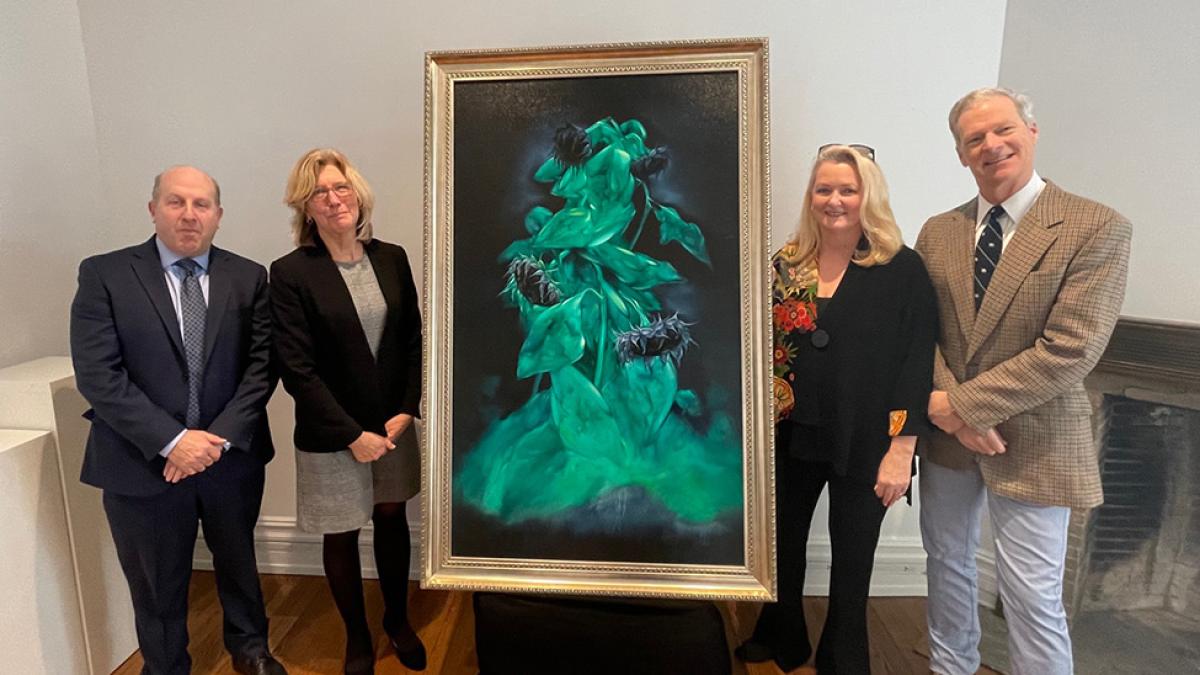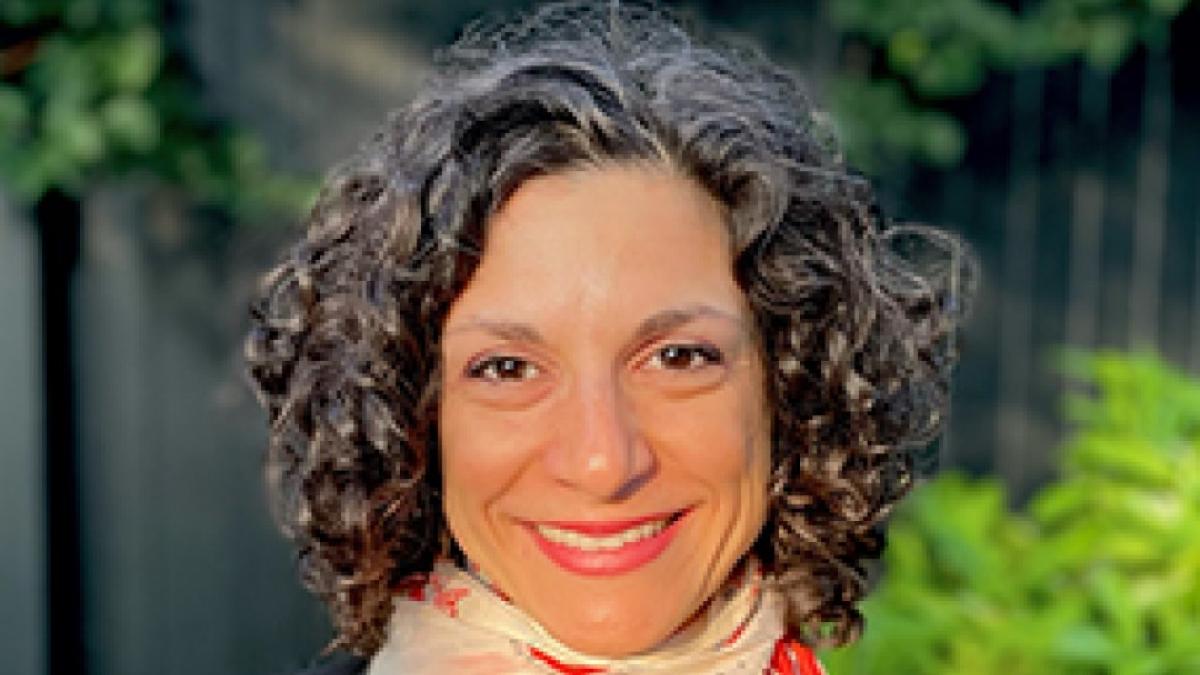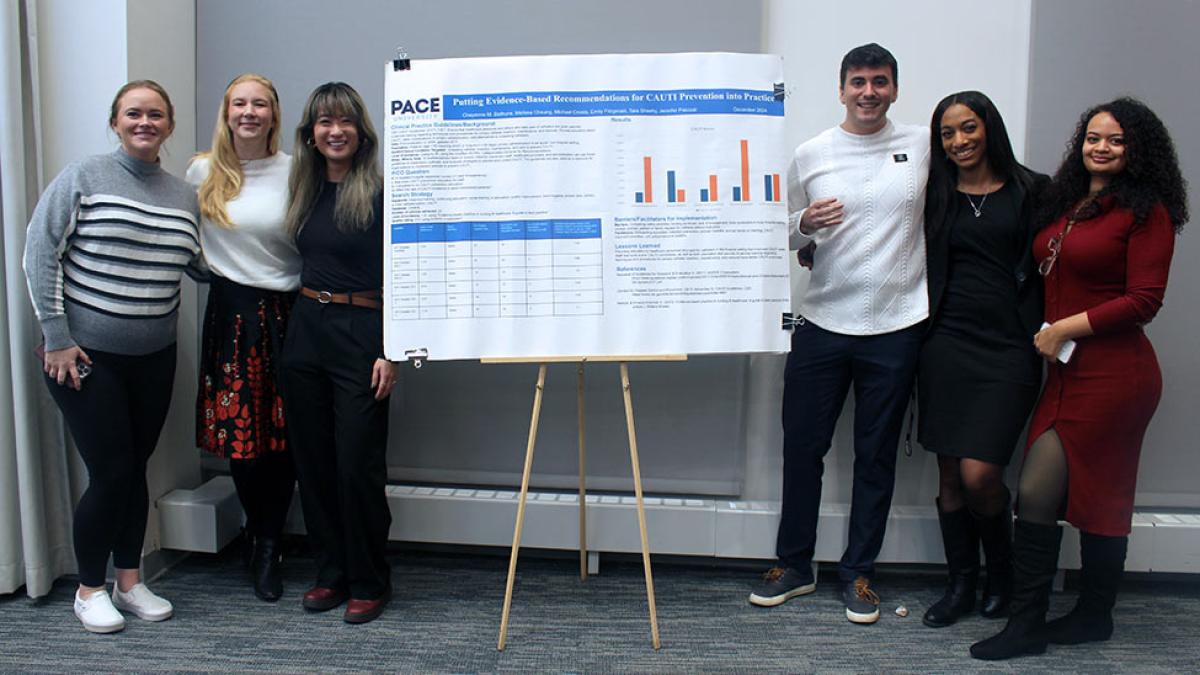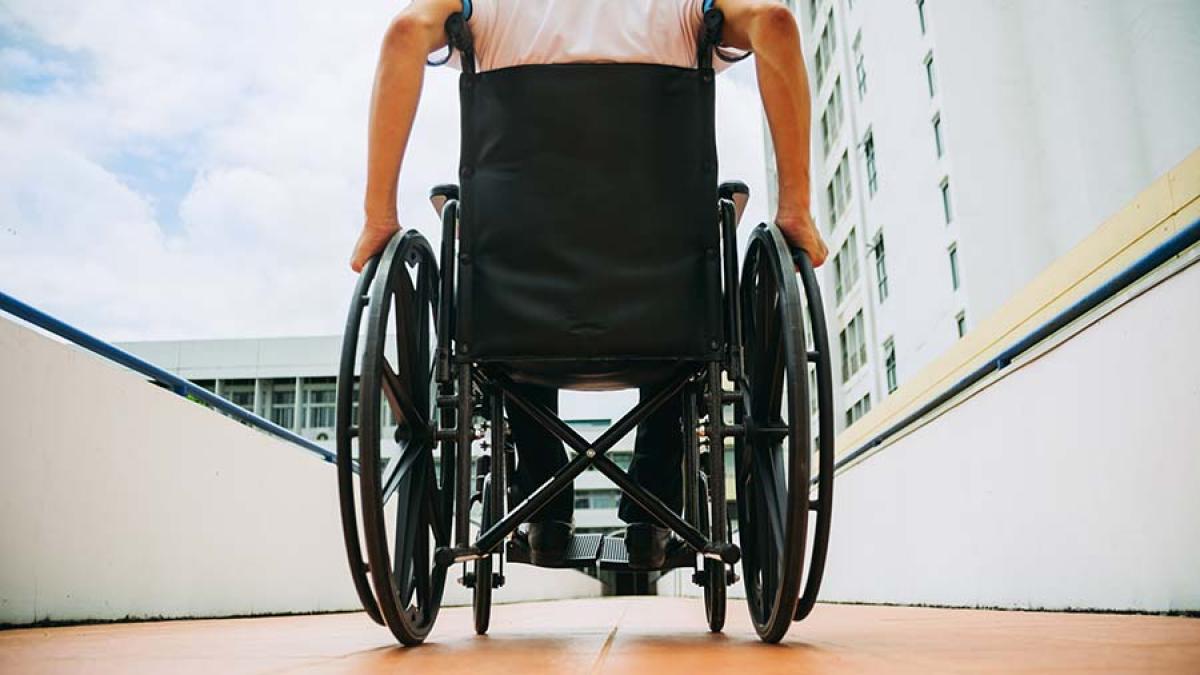The Elisabeth Haub School of Law at Pace University is pleased to announce that Kate Skolnick, an accomplished public defender and respected criminal law scholar, will join the faculty as an Assistant Professor of Law beginning in Fall 2025. Professor Skolnick will teach courses in criminal law and criminal procedure, along with an advanced criminal law seminar.
Faculty Focus: Professor Shelby Green
Professor Shelby Green is the Susan Taxin Baer ’85 Faculty Scholar at the Elisabeth Haub School of Law at Pace University. She joined Haub Law in 1991 and teaches Property, Real Estate Transactions and Finance, Advanced Real Property, Historic Preservation, and Housing Development and Discrimination. In this edition of Faculty Focus, she talks about the many facets of property law and gives advice on staying positive in a polarized world.
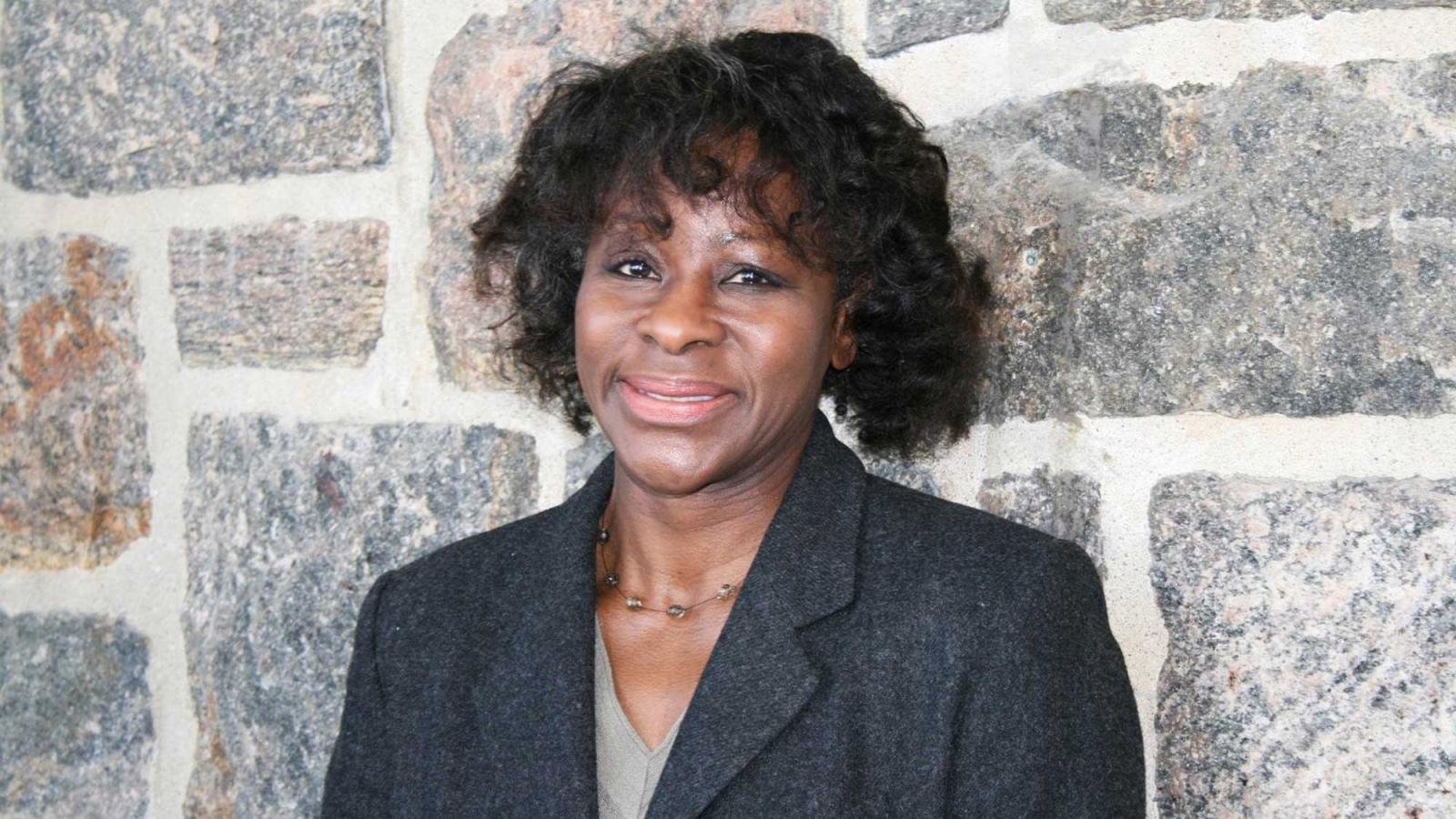
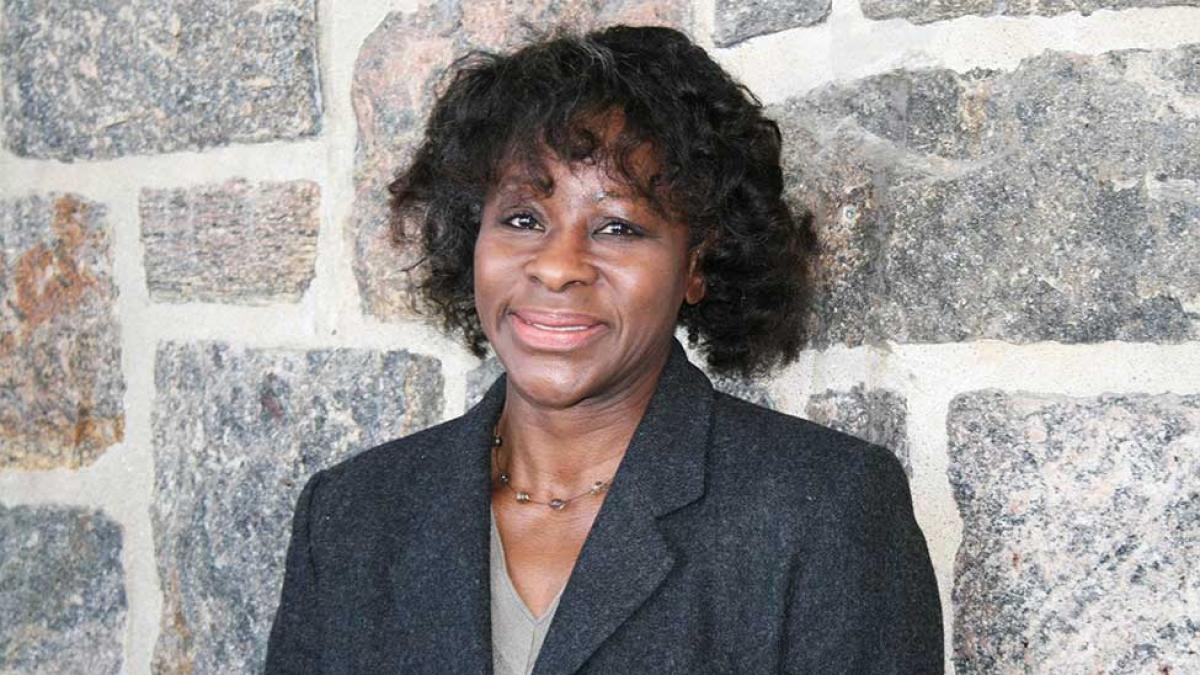
Professor Shelby Green is the Susan Taxin Baer ’85 Faculty Scholar at the Elisabeth Haub School of Law at Pace University. She joined Haub Law in 1991 and teaches Property, Real Estate Transactions and Finance, Advanced Real Property, Historic Preservation, and Housing Development and Discrimination. In this edition of Faculty Focus, she talks about the many facets of property law and gives advice on staying positive in a polarized world.
Can you tell me about your recent work?
I’m preparing for a few symposia. I’m preparing for the 2022 Arkansas Law Review Symposium – Construction Law In The Legal Academy on March 12. I’ll be on the Design Liability: Professional Responsibility, Safety, and Social Justice panel. On that panel, I will talk about the effect of new construction inventions on the cost and supply of housing construction.
I’m also preparing for the Seton Hall Law Review Symposium – American Cities Struggling with Economic Justice Reform on February 25. I’ll be on the Reinventing Cities to Create Opportunities for Affordable Housing panel. I plan to talk about rethinking zoning, adaptive rezoning to promote greater affordability and availability of housing. Adaptive rezoning means moving away from Euclidean zoning. Euclidean zoning makes sense on the fringe, keeping factories away from where people live, but it doesn't make sense to keep a school out of a place where people live. Adaptive rezoning means allowing for infill, all kinds of housing – like tiny houses, adaptive reuse, and changing height, space, and parking requirements. And it means being adaptive towards creative design with issues like climate change. For example, how we orientate houses.
I am also the Editor of Keeping Current Property column in Probate & Property Magazine. It’s a bi-monthly magazine and the column summarizes cases of note from all across the country, new legislation, and what academics in the field are writing about. I am also working on an article with Bailey Andree, a 2L and research assistant to Professor Emeritus John Nolon and a Land Use Law Center Scholar, on state control of land use policy, which we hope will be published by the magazine.
I am the Chair for the Real Property, Trust and Estate Law Section of the American Bar Association’s Legal Education Group, which among other things offers the “Professors’ Corner”, a monthly webinar on current topics. The hour long discussions recently covered a book called “Mine!: How the Hidden Rules of Ownership Control Our Lives” that talks about how we may think we own something, but there are all kinds of limitations. For example, you see people lined up for the Supreme Court and they look like regular people, who want to see the actions, be there for the discussions, but they’re just paid to stand there and are replaced by people in business suits who had them hold the spots. Do those people own the line space? Next month we’ll talk about purpose trusts, which are just trusts set up for a particular purpose, and how to draft them so they’re properly carried out. We’ll be discussing monuments in April. The statue of Teddy Roosevelt was just removed from the Museum of Natural History; next to the image of Roosevelt, stood one of an Indigenous person and a shirtless black man, implying subservience from both. What do these silent monuments say in these public spaces?
I’m also co-counsel at the Land Use Law Center with Professor John Nolon. We’re working on a project to help small commercial tenants navigate the effects of the pandemic. The eviction moratorium applied to them as well, but many had to close. We’ve been working on a recovery lease for small businesses that keeps tenants in and helps the landlords avoid vacancy.
How do you find teaching in today’s climate?
Teaching is always challenging, all the issues happening that you have to think through. The polarized nature of society is disturbing. People are too mean and not reticent to express that meanness. I have hope in your generation, though - I hope you will be calm, gentle, and caring because my generation certainly hasn’t always been. I try to engage in discussion in class that isn’t too political, but it’s hard because everything is polarized. I see a lot of students that care about society and the world, despite the media being so overwhelming with negativity.
Teaching is always challenging, all the issues happening that you have to think through. The polarized nature of society is disturbing. People are too mean and not reticent to express that meanness. I have hope in your generation, though - I hope you will be calm, gentle, and caring because my generation certainly hasn’t always been.
How did you become interested in law?
I’m not sure, in undergrad I studied sociology. There are a lot of political and social issues raised and pondered. Research is fundamental, but law allows you to be out there making direct and immediate impact. I think back to the Brown v. Board of Education strategy, where they had sociologists talking about the impact of segregation on the intellectual development of young minds. It was really interesting. I don’t discount sociology at all, but lawyers make so much impact. They get the courts to say those things are wrong.
What keeps you interested in property law?
Property is the world. It involves everything – where we can go, housing, assets, including intangible assets, access to water. What happens when the Colorado river drops another 10ft? Even criminal law has origins in property; trespass was a crime. . All about jockeying for control, it interests me.
A current issue that interests me is allocating the burden of tenants that can’t be evicted because they can’t pay their rent. Mega landlords can’t evict a handful temporarily, and although the landlords probably can't ever collect the rent, it's a risk they may have to take to enter the business. However, most landlords are small and need food for their families. I think the government should provide financial assistance to tenants to pay, which has happened.
With the 2019 tenant landlord law, they were worried about small landlords going into bankruptcy and the big ones waiting to take those buildings. Buildings were already under rent control, so the law just added more procedural protections, rights to more notice prior to eviction proceedings and limited the use of self-help – which I think is wise. Tenants can also seek stay against eviction in case of hardship.
What advice do you have for students interested in real estate and property law?
Just to keep being curious, keep reading and thinking about the larger issues and what it means for society – like ensuring housing is available and accessible, rethinking what homeowners and property owners can do, how we further limit rights, as we have done from the beginning of time, how governments need to think about what communities should look like.
Pay attention to stories. I heard one about a tenant that toured an apartment and the broker asked him if he noticed anything in the bathroom missing. He said no, but there was no toilet, you had to use a shared one down the hall. Does that meet the building code? Who alerts the inspectors? Someone rented it eventually. Pay attention to stories like this.
At Haub Law, we have a path to practice in Real Estate and Land Use. There’s an externship as well. Students are placed in firms, title companies, etc. where they get guidance and experience. The Land Use Law Center is also a great resource and place to gain experience.
Can you tell me about a non-academic interest or hobby you have?
I love hiking. My husband and I go to Colorado often in the summer. Connecticut has nice places as well. Recently, we braved the frigid temperatures and set out on an icy trail. My husband wore cleats, I only had normal hiking shoes on, so at a certain point we had to turn around. We want to go to Glastonbury State Forest next. Sometimes I play the piano. I keep buying leisure books, but don’t have time to read them, so they keep piling up!
Gabriella Mickel, a 2023 JD Candidate at Haub Law, authored this faculty Q&A. Gabriella is a Land Use & Haub Scholar, the President of the Environmental Law Society, a Junior Associate on Pace Environmental Law Review, and on the E-Board for NLG, Lambda, and ACS. Outside of school, she owns three sports supplement stores and is the co-editor of the Law Student Corner section of the NYSBA EELS Journal.
Perjury trial for Greitens investigator to offer a glimpse into ethics case against St. Louis prosecutor
Prosecutors must show that someone knowingly gave false statements under oath in order to mislead or obstruct an investigation, said Bennett Gershman, a law professor at Pace University in New York and a former Manhattan prosecutor. Proving perjury also requires that those false statements are "material" to the central issues of a case. "It's a very tight area that the prosecutor has to navigate through in order to both charge perjury and convict that person of perjury," he said. "It's not something that's easily done." Gershman, who reviewed the Tisaby indictment, characterized Tisaby's misstatements as "side issues" that don't seem central enough to the Greitens case to give rise to perjury charges. "It seems to me they're using perjury in a very, very attenuated way," he said. "Usually perjury charges go to significant issues in the case — the individual lies about these significant issues in order to thwart the investigator. Using the charge of perjury in this matter, to me, is a stretch."
Tips From The Pros: Finding & Using the Right Business Credit Card
Pace University Professor Bruce Bachenheimer: There are a number of reasons why a business card would be more advantageous to a small business than using personal credit cards. Common reasons are more sophisticated expense tracking and reporting and the ability to set customizable spending limits. Small business owners should also recognize that employees may not be comfortable using their personal credit cards, filing an expense report, and then waiting for reimbursement. While consumer protection laws generally do not apply to business cards, issuers may still extend protections to be competitive.

2022’s Happiest Cities in America
Pace University Professor Sally S. Dickerson: The pandemic is characterized a great deal of uncertainty and uncontrollability – factors that we know can activate stress responses (e.g., “fight/flight” response, release of the stress hormone cortisol). Practices such as meditation, yoga, or spending time in nature can be beneficial by activating systems that can lead to restorative shifts psychologically and physiologically, therefore potentially reducing pandemic-related stress responses.
Economics professor breaks down what sanctions against Russia mean
Pace University economics professor Mark Weinstock says denying Russia to the SWIFT system would be the most punishing move. "They rely on international banks for a payment mechanism, to transfer funds, to engage in large trade transactions, and they'll be denied this." he says.
News12 Ukraine Under Attack
Pace University Professor Andriy Danylenko insights and personal story
Two Haub Law Students Receive Scholarships from the Westchester Women's Bar Association Foundation
The Westchester Women's Bar Association Foundation (WWBAF) has awarded scholarships to two students at the Elisabeth Haub School of Law at Pace University in 2022.
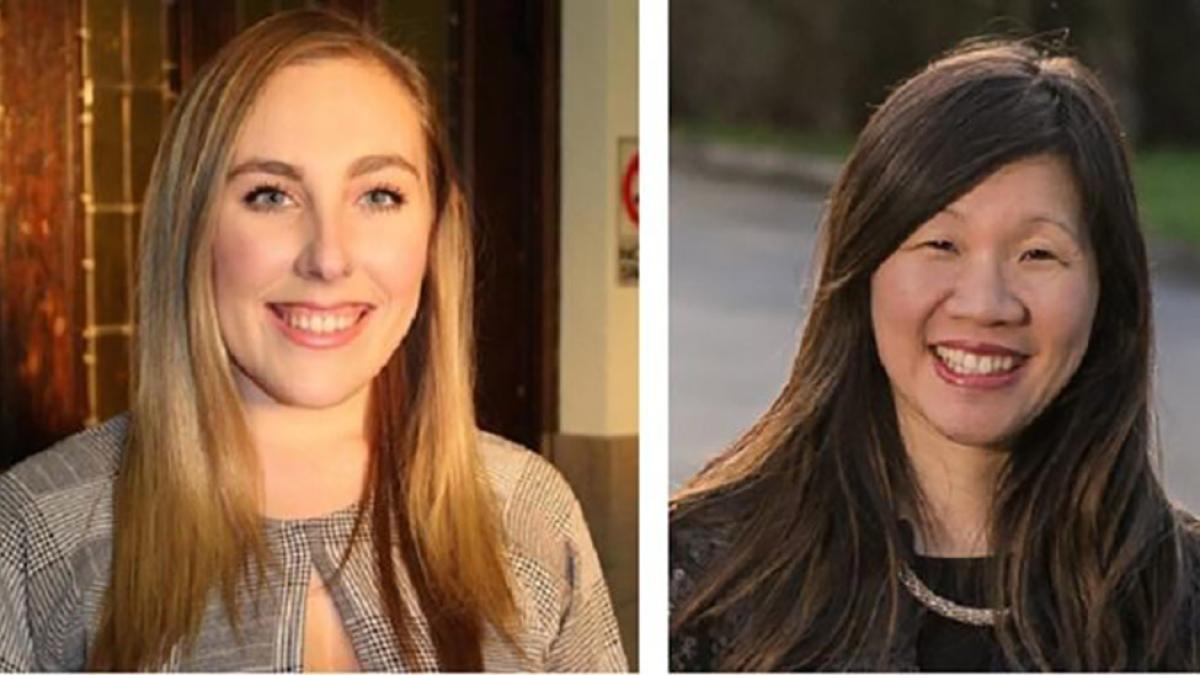
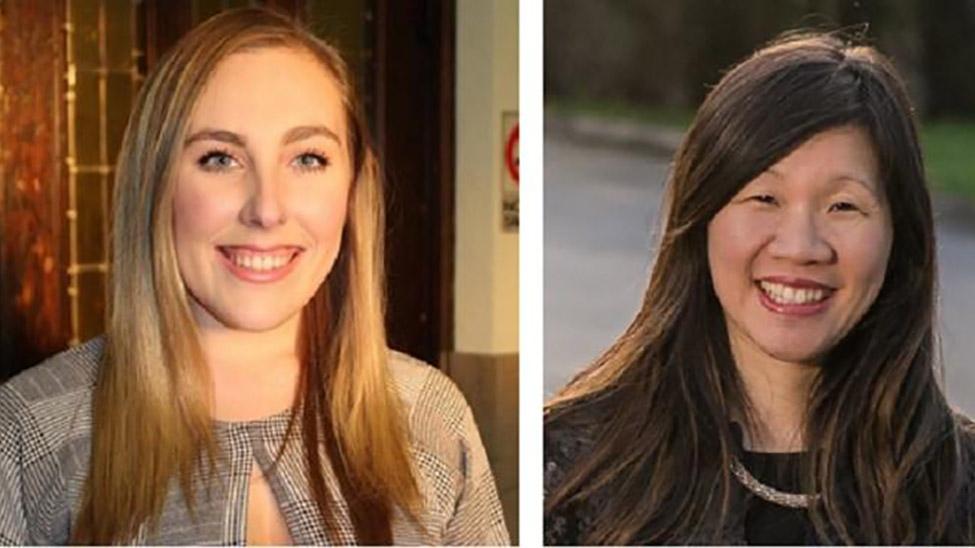
The Westchester Women's Bar Association Foundation (WWBAF) has awarded scholarships to two students at the Elisabeth Haub School of Law at Pace University.
The Justice Sondra M. Miller Scholarship is a scholarship in honor of WWBA founding member and past President Hon. Sondra M. Miller. The foundation selects a recipient each year based on considerations including the applicant's history of community service, clinic involvement, ability to balance family and job-related responsibilities, academic record, ability to overcome personal adversity in pursuit of a legal career, and demonstrated commitment to the Westchester County community. This year, 3L Madison Shaff was selected as the recipient of the 2022 Justice Sondra M. Miller Scholarship. Susan Brown, President of the Westchester Women’s Bar Association Foundation and a proud 1987 Haub Law alumna, noted “Madison has grown scholastically and professionally throughout her time at Haub Law. She exemplifies the qualities and values espoused by Judge Sondra Miller.”
3L Madison Shaff stated, “I felt drawn to the Justice Sondra Miller scholarship as she embodies so much of what I and many others strive for – as I learned more about her trailblazing, I felt a new surge of inspiration. My goal since starting law school has been to have a positive impact on the greater Pace community, and Justice Miller reminds me to continue to dream big. I hope to take this inspiration and put it to good use once I begin my legal career here in New York. I am honored and extremely thankful that the WWBAF awarded me this scholarship.”
A second scholarship was funded this year by the WWBAF, the Justice Sondra Miller Merit Award. Second year law student, Kasama Star, was awarded this scholarship. “Kasama has achieved an amazing number of stand-out accomplishments in her two-year law school experience that promote the fair and equal treatment of all people in society, the workplace, schools and court system,” noted Susan Brown.
“I was immediately drawn to apply for a WWBAF scholarship because I greatly admire the Foundation and the work they do and felt that my personal background, experiences, and goals were a good fit. As I went through the process, I learned more about Justice Sondra Miller “firsts” – that she was among Harvard Law’s first class of women, first to be elected to the Supreme Court, Ninth Judicial District, and first to be appointed as Associate Justice, Appellate Division, Second Department. I was inspired by her blazing a trail for others. I identified with that because I am a non-traditional law student and had to face unique challenges to become “first” at many things. I also wish to accomplish many more “firsts,” as well as help others to reach their important “firsts.” I am so appreciative of the WWBAF, the work they do, and this opportunity,” stated merit scholarship recipient Kasama Star.
Leveling-Up in China: A Look into Chinese Gaming Culture
Internet addiction, the rise of esports, and stigma surrounding digital gaming in China. Pace professor Marcella Szablewicz examines how new communication technologies impact a growing culture shift.


As part of Pace University’s commitment to invest in and encourage scholarly work, many of our faculty at are conducting essential research alongside their usual instructing. Marcella Szablewicz, PhD, a Communications Studies professor at Pace’s NYC Campus, is one of them. Szablewicz has been studying a phenomenon since the early 2000s that may catch the attention of anyone who turns to the internet for relaxation or escapism. Her emphasis? The culture and stigma surrounding recreational internet usage in China.
“What would the internet mean for China, being an authoritarian country and one that represses a lot of personal freedoms? Many people speculated that the internet would be a democratizing force in China” she says, “However, there was also a lot of emphasis placed upon how people were going to use the internet to resist the government or engage in politics.” This generalized perspective about the Internet in China sparked Szablewicz’ interest as an undergraduate, motivating her to move away from western bias and dive deeper into how Chinese youth were actually using the internet in everyday life.
“I liken it to American bar culture because it was illegal for these teenagers to be going into internet cafes, so they would have to use fake IDs. Once they got in, it was a social party with everyone playing digital games.”
As the creator of New Communication Technologies and Moral Panic, a communications course at Pace, Szablewicz is well-versed in the concerns that come with new forms of communication technology and the fact that these fears have been consistent throughout history. In this particular case, it’s the Chinese government’s strong concerns about digital gaming leading to internet addiction. Concerns that are strong enough for China’s government to implement heavy internet restrictions for teenagers. Concerned parents have even resorted to sending their children to internet addiction “bootcamps,” where young people participate in military style drills or electroshock treatment to cure their addiction.
Ever since her frequent travels to China for field work, Szablewicz has made insightful discoveries about the youths’ reaction to the fear and stigma surrounding gaming.
“A lot of teenagers were rebelling against the pressure of intense schoolwork and academics, so they would escape to internet cafes to play digital games as a kind of pastime. It was a really interesting phenomenon.” She laughs, “I liken it to American bar culture because it was illegal for these teenagers to be going into internet cafes, so they would have to use fake IDs. Once they got in, it was a social party with everyone playing digital games.”
Though Szablewicz set out to observe trends in recreational internet use, she has also noticed a correlation with the simultaneous rise of esports, a professional competitive form of digital gameplay. Though this trend of elevating video gaming from a casual hobby to a competitive sport is worldwide. In fact, Pace just announced their own esports program, making these digital competitors part of Pace’s 15th varsity sport—China was actually one of the very first countries to deem esports a legitimate sport. What began as a form of escape for Chinese youth has now become a means of earning income. “Some teenagers were rising through the ranks of gaming to become competitive gamers and earning huge amounts of prize money from playing games,” she says. “Now there’s this tension between games as a source of rebellion and games as a potential career path.”
She also noticed that many young people had to maneuver their way around the “internet gaming” stigma: “A lot of the college students were going out of their way to distance themselves from being identified as an internet gamer because they’d be labeled as an addict, so instead they would align themselves closely with esports,” she recalls.
Throughout all her research, Szablewicz has discerned a societal significance to the stigmas and paradoxes surrounding gaming in China. “The thing that I find most significant is how ideas about what constitutes productive leisure tend to tell us a lot about a societies’ values and where those values are placed,” says Szablewicz.
“I’m really fascinated by ways in which youth leisure choices are often controlled by those in power, who are often older generations who don’t necessarily understand the leisure choices of youth. The idea of high culture is seen as worthwhile, but when it comes to popular culture among young people, it is denigrated and seen as useless or time wasting,” she says. “People who are in power are trying to keep young people from taking up their position in places of power and it’s kind of a repetitive pattern.”
However, Szablewicz’s research reveals that no matter what barriers are placed, younger generations tend to find a way to innovate. Whether it is through sneaking into internet cafes after school, or carving out their own career paths, the focus on gaming in China reveals the resilience of these young gamers.
Interested in learning more about China’s gaming culture? Check out Marcella Szablewicz’s new book Mapping Digital Game Culture in China.
More from Pace
Esports has arrived at Pace as our 15th varsity sport. Get your introduction to this booming industry, our new Esports director, and the students who have been passionately dedicated to the program since its days as a student club.
College of Health Professions Associate Professor and occupational therapist John Damiao is leveraging technology to make substantial improvements to the lives of wheelchair users through research, aiming to increase comfort and reduce injuries.
Finance Professor PV Viswanath knows that understanding finance goes beyond just dollars and cents—financial markets have a real-world impact on the disadvantaged among us. Read how he’s teaching a new generation of finance professionals to tackle wealth and income inequalities.
Senator Pete Harckham Tours Pace University’s Clinical Training Labs to Discuss Solutions to Nursing and Healthcare Worker Shortage
"The stress and strain of the pandemic have exacerbated the existing shortage of nurses in New York State,” said Senator Harckham. “I am thrilled to be able to spend time with this new generation of nurses at Pace University, who will greatly benefit the workforce. It is critical that we encourage and reward people to join the nursing profession, which needs rejuvenation and reinforcements."


College of Health Professions’ Faculty & Staff outline ways to increase critical staff pipeline.
Pace University today hosted New York State Senator Pete Harckham on a tour of its clinical simulation labs and held a roundtable discussion on addressing New York’s critical need for nurses and other primary care professionals.
In visiting Lienhard Hall, home to Pace’s College of Health Professions and its Lienhard School of Nursing, Harckham joined faculty, staff, and nursing students – all of whom shared their experiences in the field and discussed ways to address the nursing shortage and expand the healthcare worker pipeline, a staffing issue that has been exacerbated by the COVID-19 pandemic.
"The stress and strain of the pandemic have exacerbated the existing shortage of nurses in New York State,” said Senator Harckham. “I am thrilled to be able to spend time with this new generation of nurses at Pace University, who will greatly benefit the workforce. It is critical that we encourage and reward people to join the nursing profession, which needs rejuvenation and reinforcements."
“Simulation is an evidence-based component of training of multiple health professions that has been proven to enhance student learning, confidence, clinical skills and ultimately improve the quality of patient care,” said Marcus Tye, dean of Pace University’s College of Health Professions. “Incentivizing preceptors and expanding the use of simulation in healthcare training will help increase the supply and quality of our future health workforce.”
Nurses provide 90% of all care to patients in hospitals, and by 2030 there is a projected shortage of more than 39,000 registered nurses in New York, according to the New York State Department of Health. The challenge is so great across the country that The American Nurses' Association called for the Department of Health and Human Services to declare a national nurse staffing crisis.
Further complicating the situation is that many schools are limited in the number of licensed nurses they can prepare, despite great interest in the field, because of a shortage of clinical training experiences.
“I have met with numerous chief nursing officers from NYC and Westchester County healthcare agencies, all of whom voiced deep concern about current and pending severe staffing shortages,” said Rhonda Maneval, vice dean for the College of Health Professions and the Lienhard School of Nursing at Pace University, who testified before the State Legislature on the nursing shortage issue. “These meetings focused on ways our school could provide more practice-ready graduates. The good news is that, despite the pandemic, or because of it, people want to become nurses. By working together, we can address this crisis head on.”
Pace University faculty have been leaders in advocating for ways to prepare and educate more people for a career in healthcare through a series of measures and proposals including providing practitioners with tax credits as well as passage of a bill that would recognize a portion of a student’s time spent in a controlled simulation laboratory count toward their required clinical hours.
“When it comes to preparing nurses for a complex work environment, far too many healthcare facilities and schools are in a catch-22 situation: They have a shortage of nurses and space to dedicate to student clinical experiences, and as a result, schools are therefore limited in the number of healthcare workers they can prepare for the workforce,” said Dr. Harriet R. Feldman, chief wellness officer, professor and dean emerita of the College of Health Professions and the Lienhard School of Nursing. “Through smart legislation and policy, however, nursing schools and host institutions can work together to increase the pipeline of workers ready to respond to emergencies.”
For Cristina DeRose, a senior majoring in nursing, classes that take place in a simulation lab are productive and mirror real life emergencies. “With simulation, you know every student has gotten the experience necessary to work in the field.”
Senior Alexis Ninonueva agreed: “Simulation is especially helpful. Time in the sim lab gives you confidence and Pace is doing a great job preparing us for the profession.”
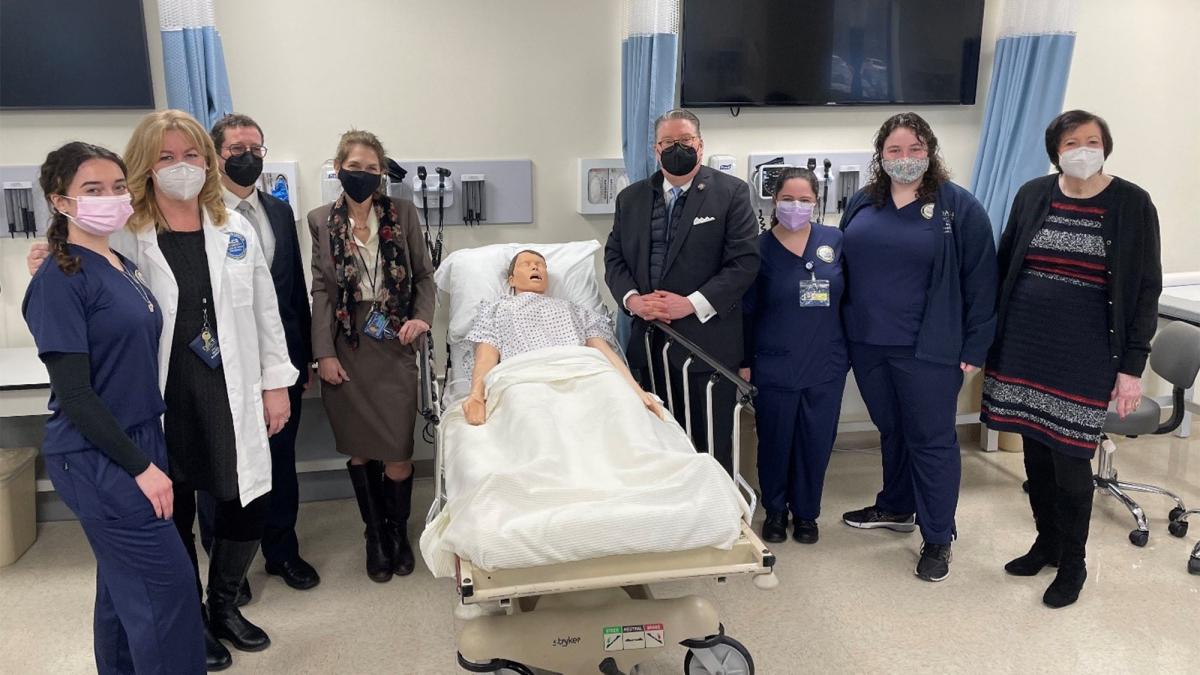
About Pace University
Since 1906, Pace University has educated thinking professionals by providing high quality education for the professions on a firm base of liberal learning amid the advantages of the New York metropolitan area. A private university, Pace has campuses in New York City and Westchester County, New York, enrolling nearly 13,000 students in bachelor’s, master’s, and doctoral programs in its Dyson College of Arts and Sciences, Lubin School of Business, College of Health Professions, School of Education, School of Law, and Seidenberg School of Computer Science and Information Systems.
About College of Health Professions
Established in 2010, the College of Health Professions at Pace University offers a broad range of programs at the bachelor, master, and doctoral levels. It is the College’s goal to create innovative and complex programs that reflect the changing landscape of the health care system. These programs are designed to prepare graduates for impactful careers in health care practice, health-related research, or as educators, and equip graduates to work in health policy and global health fields. Students in clinical programs receive hands-on training in the College’s interprofessional Center for Excellence in Healthcare Simulation and have the opportunity to apply their developing skills in real-world settings at many of the regions' leading clinical facilities. The College is currently comprised of several growing and important areas of study, which include Nursing, Physician Assistant, Communication Sciences and Disorders, Nutrition and Dietetics, Occupational Therapy, and Health Science. Our vision is to be recognized for our innovative leadership in education, practice, scholarship, and service to improve health and the health professions. Our mission is to educate and challenge diverse students for the health professions to be leaders, innovators and lifelong learners who will positively impact local, national, and global health.
Rockefeller Donates Chinese Oil Painting to Pace University
Mr. and Mrs. Steven Rockefeller Jr., longtime residents of the Hudson Valley, philanthropists, and supporters of the arts, have donated a beautiful oil painting by a celebrated contemporary Chinese artist to Pace University. The painting, entitled Sunflower by Huang Yue, will be on display in a secure location at Pace's Mortola Library. It was presented to President Marvin Krislov on Feb. 10, 2022 at The Choate Art Gallery on the Pleasantville campus.
